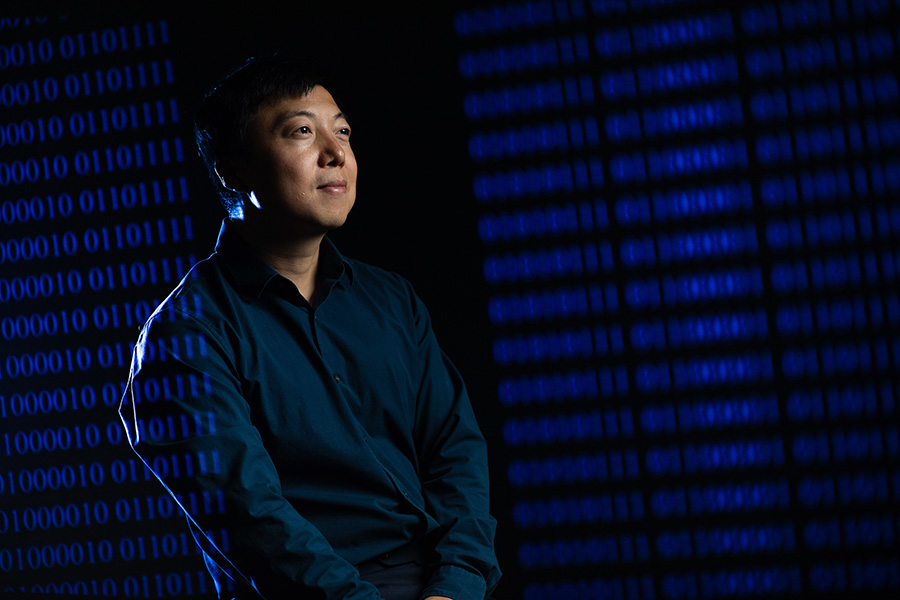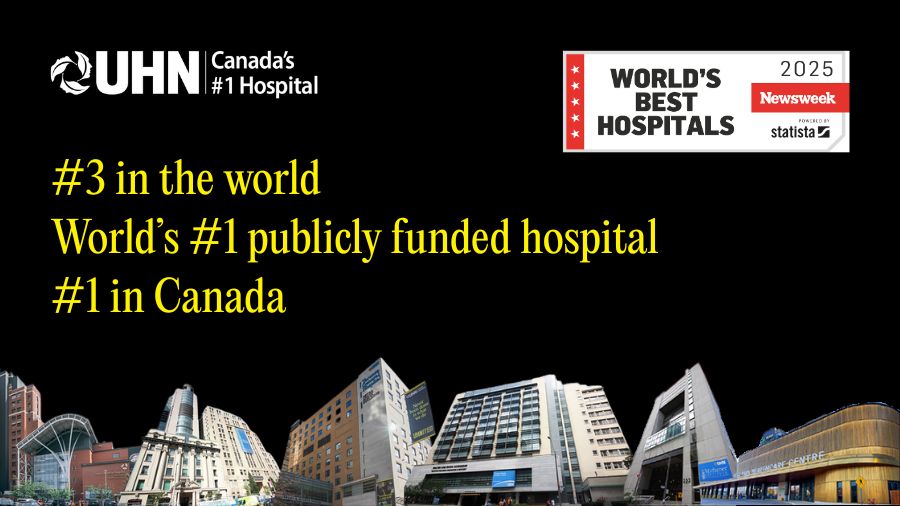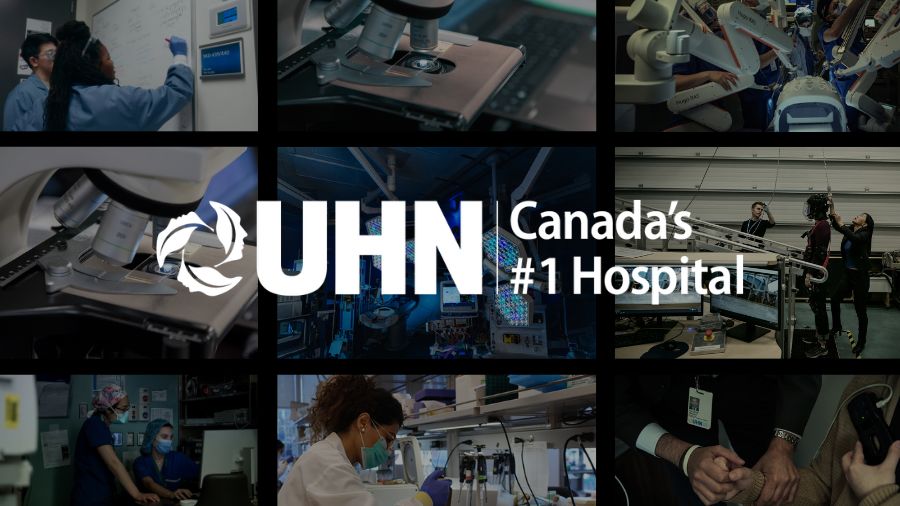
Canada’s first hospital Chief Artificial Intelligence (AI) Scientist has been appointed at UHN, the country’s largest research hospital.
Dr. Bo Wang, whose primary research areas are machine learning, computational biology and computer vision, will take on the pioneering role. His appointment builds upon the launch earlier this year of UHN’s AI Hub, a UHN Collaborative Centre for AI and Data Science and another first-of-its-kind initiative in the Canadian health care landscape.
Designed to augment human intelligence through AI health care innovation, the UHN AI Hub brings together scientists and clinicians from across UHN working in AI, including those in cancer, cardiovascular disease, neuroscience, transplant and rehabilitation.
Health care is becoming increasingly data-driven and AI plays a pivotal role in extracting valuable insights from large datasets, says Dr. Wang, who is also co-lead of the UHN AI Hub with Dr. Shaf Keshavjee, Chief of Clinical Innovation at UHN and Director of the Toronto Lung Transplant Program.
“AI has the potential to revolutionize health care by improving patient outcomes, increasing efficiency and reducing costs,” says Dr. Wang, who has been Lead AI Scientist at UHN’s Peter Munk Cardiac Centre since 2019. “This role offers an opportunity to drive innovation and advance patient care.
“With this new position, we will spearhead the integration of AI technologies into clinical practice, ultimately leading to more personalized and effective health care for Canadians.”
Dr. Brad Wouters, UHN’s Executive Vice President of Science and Research, says Dr. Wang’s appointment “represents the long-term commitment we’re making in AI in health care at UHN and the important role it will play in achieving the organization’s goals in research, innovation and clinical care.”
Many UHN clinicians and researchers already using AI
Dr. Wouters says UHN is in a good position to lead this work due to the uniqueness of the vast amounts of data available here. UHN sees patients with some of the most complex cases in Canada and being located in Toronto – one of the most multicultural cities in the world – means great patient diversity.
In addition, UHN recently became a founding member of Mayo Clinic’s Platform_Connect data network, which offers access to even more datasets from large hospitals around the world, Dr. Wouters says.
The clinical data used is de-identified clinical data to protect patient privacy.
Many UHN clinicians and researchers have already begun using forms of AI to enhance patient care. In addition to the UHN AI Hub, which was established in May, the Temerty Centre for AI Research and Education in Medicine at the University Toronto (U of T) is also committed to AI in health care.
“We’re well positioned to create a new leadership role like this at UHN and tap into the other expertise and investments going on in Toronto,” Dr. Wouters says. “We very much want Bo’s leadership and the new UHN AI Hub Collaborative Centre to strengthen the partnerships across Toronto, across Canada and around the world.”
Dr. Wang graduated with a PhD from the Department of Computer Science at Stanford University before he was recruited to UHN. He now holds a CIFAR AI Chair at Vector Institute and is also an inaugural Temerty Professor in AI Research and Education in Medicine, and assistant professor at U of T.
‘Team-based approach…yielding amazing productivity’
Dr. Barry Rubin, Program Medical Director of the Peter Munk Cardiac Centre, had a vision to integrate machine learning, or AI, into research, education and clinical work, and with the support of the Peter and Melanie Munk Charitable Foundation created an AI team in 2019 with Dr. Wang as Lead AI Scientist.
“For us, the secret sauce was integrating computer scientists, software engineers, data scientists and clinician researchers,” Dr. Rubin says. “From a technical point of view, they don’t speak the same language and have different areas of expertise, but we saw potential for them to be complementary.
“It’s this team-based approach that has been remarkable and is yielding amazing productivity,” says Dr. Rubin, noting there are about 80 AI projects at the Peter Munk Cardiac Centre now in development.
“In his new role, Bo will be able to show other programs across UHN how to operationalize an AI team.”
Dr. Wang says among the AI applications he hopes can be explored through the new role include:
- Precision medicine – leveraging AI to analyze genomic data, clinical records and other patient-specific information to develop personalized treatment plans;
- Radiation therapy optimization – enhancing the precision and effectiveness of radiation therapy for cancer patients through AI-driven treatment planning and monitoring;
- Clinical documentation – streamlining the documentation process for health care providing by automating the generation of clinical notes and reports, allowing them to focus more on patient care;
- Drug discovery – utilizing AI to accelerate the drug discovery process by predicting drug interactions, identifying potential drug candidates and optimizing clinical trial designs;
- Patient engagement – developing AI-powered tools to empower patients in managing their health, including remote monitoring and telemedicine solutions.
“These are just a few examples and I’m eager to collaborate with experts across UHN to explore and implement AI solutions that improve patient care and health care operations,” Dr. Wang says.
Dr. Keshavjee says “the possibilities are endless” and the mandate of the Chief AI Scientist role and the AI Hub at UHN the two of them are co-leading is to ensure AI initiatives are “safe and effective.”
“Bringing the work happening across UHN together, will help raise all boats,” Dr. Keshavjee says. “It’s about helping interpret and use AI to provide practical solutions and help doctors, researchers, clinicians and educators be better at what they do.”


